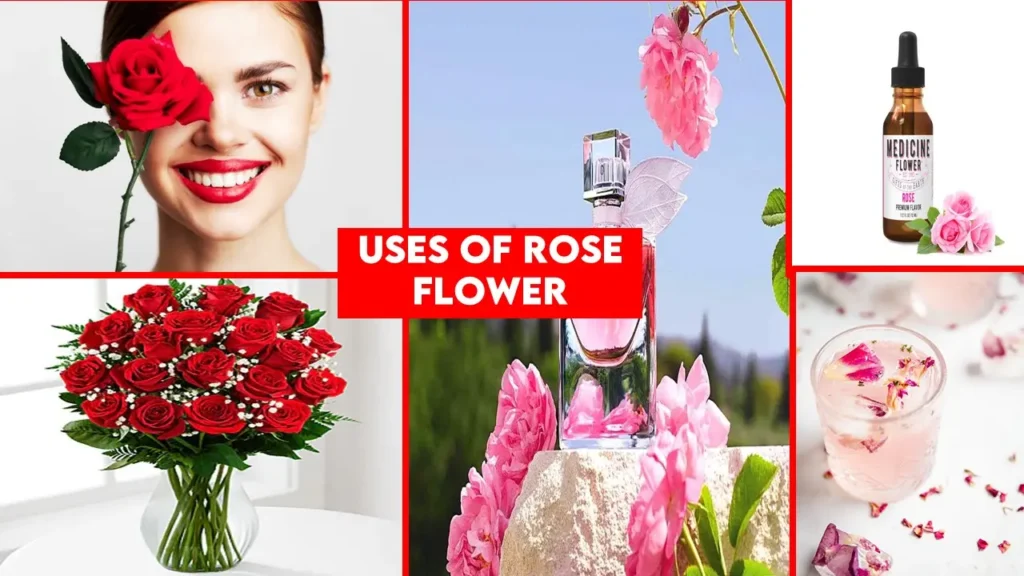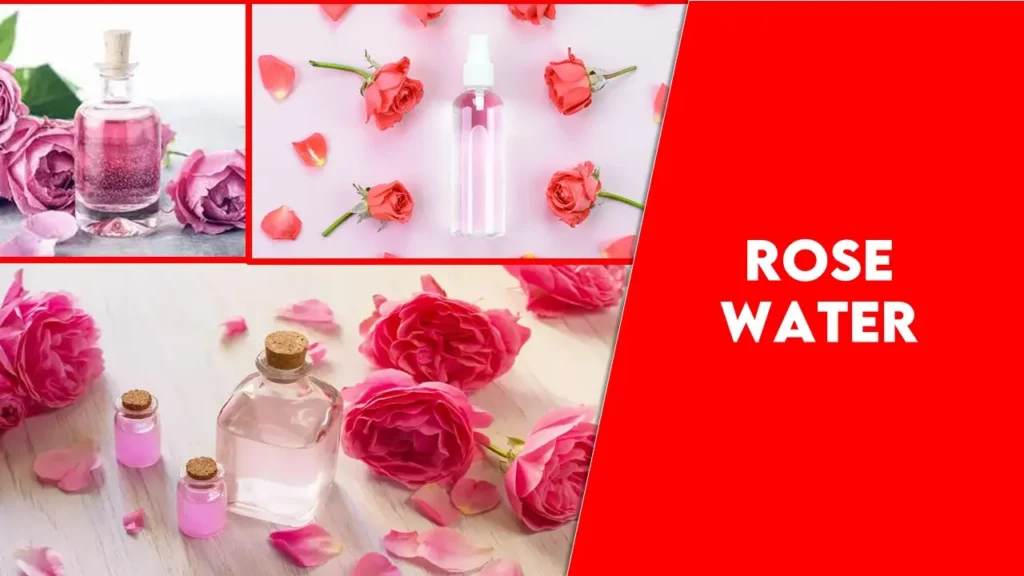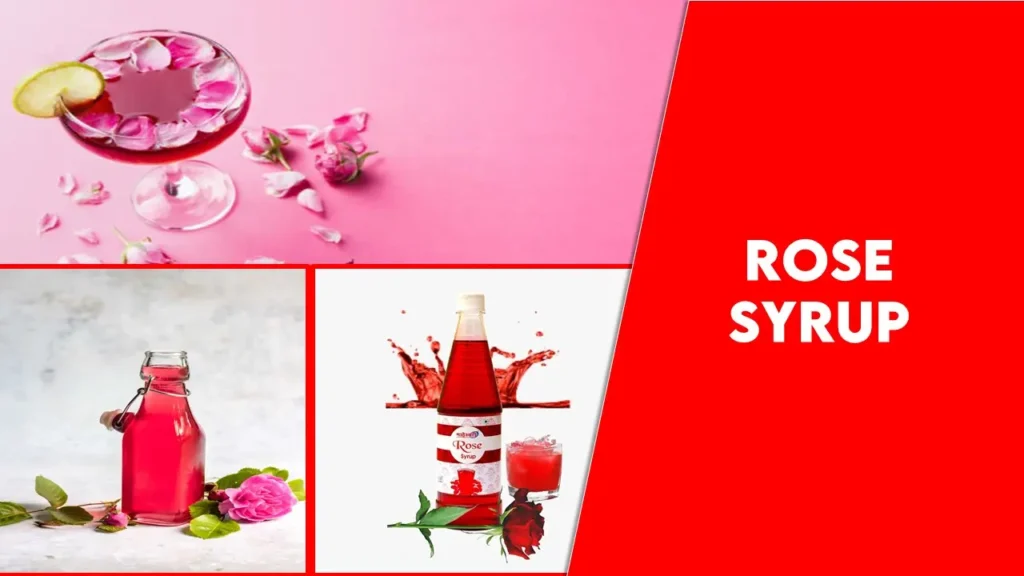A Rose is not just a flower. It is a symbol. A symbol of the most beautiful human emotion; love. This symbolism originated in Ancient Greece, where the rose was associated with Aphrodite, the Greek goddess of love. According to Homer’s ‘Iliad’, Aphrodite used the “immortal oil of the rose” to protect the body of Hector. From then on this beautiful flower has been used by people across the world to show their feelings of love to others. Jawaharlal Nehru used to keep a rose attached to his jacket to show his love for children.
Apart from being used as a tool to exhibit affection, the rose has multiple benefits and uses. Uses of rose range from medicinal, cosmetic, cooking, and gardening. Each plant part of the rose plant possesses unique properties that confer certain benefits. We will discuss a portion of the numerous uses of rose plant.
The Rose Plant: A Brief Description
A rose is a woody perennial flowering plant that can be erect shrubs, climbing, or trailing. The stems of the rose are covered with sharp prickles or thorns. There are over 300 species of roses with 10,000 cultivars. The variation in size and shape is incredible with rose plants ranging from compact, miniature roses, to climbers that can reach 7 meters in height.
The leaves are 5-15 cm long and arranged alternatively on the stem. The leaves have a serrated margin and basal stipules. Prickles are found on the underside of the stem. The flowers have 5 petals with each petal divided into two distinct lobes. Red, white, pink, and yellow color variations are found.
Uses of Rose Plant
Now we will be looking at the various uses of rose flowers, leaves, and buds.
1. Uses of Rose Flower
The rose flower is not only a symbol of love and beauty but also offers a plethora of practical uses. Let’s explore them in detail:
- Cut Flowers: Roses are used as cut flowers for decorative purposes.
- Perfume: Rose petals are essential in the production of perfumes and fragrances. The distillation of rose petals produces rose oil. This oil is then used to make perfumes.
- Ornamental Plants: Roses serve as ornamental tree in gardens, parks, and landscapes.
- Medicinal Uses of Rose Flower: Consuming rose tea made from dried petals can benefit heart health. Boiling 15 rose petals in water and consuming them with a little honey or sugar is particularly good for the heart. Rose tea prevents urinary tract infections. Rose petals are rich in antioxidants, contributing to overall well-being. Along with that, Rose petals are a natural source of vitamin C, which supports the immune system. Applying a paste of rose petals to wounds promotes quick healing. Applying rose petal paste to the body helps regulate excessive sweating and provides a pleasant fragrance.
- Food and Drink: Besides its health benefits, rose tea is a delightful beverage. Rose tea doesn’t contain caffeine and is used for weight loss. Dried rose petals can be added to culinary creations, including desserts, jams, and syrups.
- Skincare and Cosmetology: Rose extracts are used in antiseptics and antioxidants. The uses of dried rose petals for skin stem from the antiseptic and antioxidant properties of rose petals. Derived from rosehips, rose oil is used in ointments and medicines for skin and hair-related issues. This is the best use of rose oil in cosmetics.

Rose Water
Rose water is made by steeping rose petals in water. The benefits of using rose water on face are outstanding. Here are the uses of rose water in face:
- Balancing pH Levels: Rose water is a natural skin toner due to its pH-balancing properties. It is the reason for the uses of rose water for skin whitening. It soothes and gently moisturizes the skin, maintaining its delicate pH levels. As an astringent, it removes dirt and grime from pores, refining them when used as a toner. The use of rose water in face is due to these factors.
- Anti-Inflammatory and Antibacterial: Rose water is anti-inflammatory and antibacterial, making it excellent for soothing irritation and calming redness.
- Refreshing Morning Routine: Cleanse your face with a gentle cleanser. Hold the rose water spray about 6 inches away from your face. Mist your entire face evenly with the spray until it feels slightly damp. Let the rose water dry on your face and continue with your day. Apply makeup after using rose water.
- Mid-Day Refreshment: Keep a small, travel-sized bottle of rose water with you. Spritz your face throughout the day to refresh yourself when feeling hot or run-down.
- Calming Irritated Skin: If your skin appears red or inflamed, use rose water. You can either spray it directly or dab it on with a cotton pad. Pure rose water contains active compounds that cure redness and inflammation on application.
- Gentle Makeup Remover: At the end of the day, dab rosewater on your face to gently remove makeup.

Rose Syrup
Rose syrup is a delightful and aromatic sweet liquid made from rose petals. Let’s explore more about it:
- Ingredients:
- Rose Petals: Fresh or dried rose petals are the primary ingredient.
- Sugar: Used to sweeten the syrup.
- Water: To create the base for the syrup.
- Clove: Sometimes added for extra flavor.
- Preparation:
- Drying Rose Petals: If using fresh rose petals, clean and dry them thoroughly. Place them on kitchen paper towels and let them dry at room temperature for a couple of days until they become crisp.
- Infusion: Boil water and pour it over the dried rose petals. Allow the petals to rest in the water until it cools down. Refrigerate this mixture for 12 to 15 hours.
- Straining and Boiling: Strain the rose-infused water into a saucepan. Add sugar and cloves. Heat the mixture, stirring to dissolve the sugar. As it boils, the foam will dissipate. Simmer for 10 minutes and turn off the heat.
- Cooling and Thickening: Let the rose syrup cool completely. It will thicken as it cools down.
- Usesof Rose Syrup
- Rose Milk: Mix the syrup with milk to create the classic rose milk.
- Flavored Drinks: Add it to cold or hot beverages for a floral twist.
- Desserts: Drizzle over ice creams, custards, or puddings.
- Cocktails: Use it as a sweetener in cocktails.
- Mocktails: Create refreshing non-alcoholic drinks.
- Storage:
- Store the rose syrup in a glass bottle and refrigerate it for at least 2 months.

2. Uses of Rose Leaves
Let’s delve into the uses of rose leaves. Rose leaves, from the Rosa centifolia species, offer various benefits and have been utilized for centuries. Here are their notable uses:
- Medicinal Uses of Rose Plant Leaves Rose leaves act as a natural blood purifier, helping to cleanse the system. Some traditional systems of medicine consider rose leaves to have aphrodisiac properties.
- Nutrient Content:
Saponins: The leaves contain approximately 8.5% saponins, which contribute to their medicinal effects. Extracts from rose leaves yield volatile oils containing compounds like citronellol, geraniol, and nerol.
Tannins: About 15% tannins are present in rose leaves.
Flavonoids: Quercetin, kaempferol, and cyanidin are flavonoids in the whole plant.
- Rose Hip (Fruit):
- The fruit of the rose plant, known as rose hip, is rich in:
- Vitamin C: Beneficial for immune health.
- Malic Acid: Supports digestion.
- Citric Acid: Adds to its tangy flavor.
- The fruit of the rose plant, known as rose hip, is rich in:
- Wound Healing:
Due to their astringency and antioxidant content, rose leaves can aid in wound healing. The antimicrobial properties of rose prevent infections.
Also Read
3. Uses of Rose Buds
Let’s explore the specific uses of rose buds, focusing solely on this part of the plant. Rosebuds, derived from the Rosa species, offer a range of benefits:
- Rose Bud Tea: Rose bud tea is made from the fragrant petals and buds of rose flowers. It’s naturally caffeine-free and a delightful alternative to traditional caffeinated drinks. Rose tea primarily consists of water, contributing to your daily fluid intake. Adequate hydration can boost metabolism and aid weight loss by making you feel fuller and reducing calorie intake.
- Medicinal Properties: Rosebuds deliver anti-inflammatory properties, which may soothe irritated eyes, sore throats, and nasal discomfort. Rosebud preparations are useful for heart health and may help regulate blood pressure.
Applying a paste of rosebud petals can promote quick wound healing. Rosebud paste applied to the body helps regulate excessive sweating and provides a pleasant fragrance.
- Culinary Uses: Rosebuds add a delicate floral flavor to culinary creations. Dried rose buds serve as an attractive garnish for dishes and beverages. Combine rose buds with other herbs for unique tea blends.
4. Uses of Rose in Ayurveda
In the Ayurvedic system of medicine, roses are revered for their therapeutic properties. Let’s explore how this fragrant flower plays a vital role:
- Balancing Vata and Pitta: Rose is classified as a sweet, bitter, hydrating, oily, and cooling herb in Ayurveda. These properties make it an excellent pacifier for both Vata (associated with movement and the nervous system) and Pitta (linked to digestion and metabolism). If you have imbalances related to Vata or Pitta, incorporating rose water into your diet can be beneficial. Add it to smoothies, herbal teas, or desserts like kheer.
- Morning Refreshment: Start your day with a delightful rose water spritz. Spray it on your face to instantly uplift your senses and combat morning dullness and fatigue. The invigorating fragrance of rose helps you wake up refreshed.
- Anti-Inflammatory Properties: Rose petals contain natural anti-inflammatory compounds. Rose water or rose-infused shampoo can also address scalp inflammation.
- Aphrodisiac Effects: The rose is globally recognized as a symbol of romance and sensuality. Even the sight of rose petals strewn on a bed can set a romantic mood.
- Skin Health and Healing: Rose petals have antiseptic, anti-inflammatory, antiviral, and cooling properties. Applying rose water or rose oil can help with acne, burns, redness, and dryness.
- Reducing Puffy Eyes: Rose is effective in treating puffy eyes and dark circles.
In Ayurveda, roses go beyond their sweet fragrance—they offer holistic well-being for the heart, mind, and emotions. Incorporate the magic of rose into your life and experience its myriad benefits!
Also Read
Conclusion
The rose plant encompasses multiple organic compounds like tannins, saponins, flavonoids, and many other compounds that benefit the human body. The presence of these beneficial organic compounds confers important medicinal, cosmetic, and culinary properties to the plant. One specialty of the rose plant is that each part: the flower, the leaves, and the buds have their own special benefits. These parts are used to make rose water, rose syrup, rose oil, rose tea, etc., and have immense medicinal and cosmetic specialties.
We have often overlooked the Rose plant. We only saw it as a gift to our loved ones to show them our affection. This idea of seeing the rose as an aphrodisiac burgeoned in Ancient Greece and was hugely popularised by pop culture. The majestic beauty and the soothing fragrance of the rose flower have not failed to captivate us. In fact, it was the sole reason why rose plants commanded the center spots in our gardens. But turns out the flower was not just for show, it had numerous benefits that we did not know.
The uses of rose plants should be identified and acknowledged by every one of us they provide key solutions to problems of the contemporary world. So, dear readers, just learn and apply!
Latest Post
- Study Agriculture Abroad : A Complete Guide for USA
- July Issue (2024): Times of Agriculture Magazine
- Why Money Plant is called Money Plant ? Answer in 5 min
- How to grow Monstera from Cutting: 5-Step Detailed Guide
- Latest 10 Finest Terrace Garden Ideas to Transform Your Rooftops
- Top 10 Low Light Hanging Plants to make your Room Crunchy
- Best Water Harvesting Techniques for a Sustainable Future
- Low Maintenance Indoor Plants for India: 15 Best plants for home gardening
- Top 23 Flowering Trees in India: Flower Tree for Home












